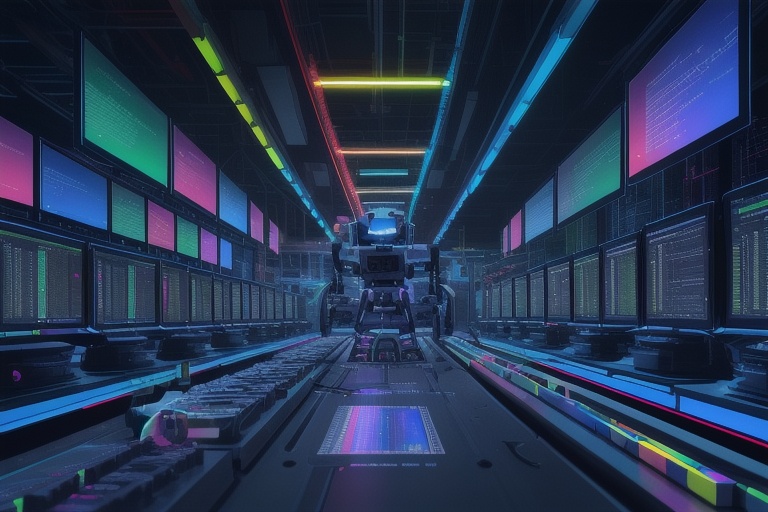Artificial intelligence (AI) is not just transforming the way we interact with technology; it's reshaping the entire healthcare industry. The potential for AI in medicine is vast, from advanced diagnostic tools to personalized treatment regimes. This technology brings unprecedented opportunities to enhance the quality and accessibility of healthcare.
Artificial intelligence (AI) is not just transforming the way we interact with technology; it's reshaping the entire healthcare industry. The potential for AI in medicine is vast, from advanced diagnostic tools to personalized treatment regimes. This technology brings unprecedented opportunities to enhance the quality and accessibility of healthcare.
However, alongside its advantages, AI introduces several threats that could compromise human health and well-being. These concerns extend beyond clinical applications to broader societal implications. Addressing them requires our urgent attention as we integrate AI more deeply into our lives.
Misuse of Narrow AI in Healthcare
One alarming prospect is the misuse of what's known as narrow AI. This type of AI is designed for specific tasks and lacks the ability to perform beyond its set capabilities. In healthcare, the misuse of narrow AI could potentially lead to increased opportunities for controlling and manipulating individuals. Personal data is more accessible than ever, increasing the risk of privacy breaches and potential harm. Such misuse could corrode trust in healthcare systems, threatening the safety and security of patient information.
The Threat from AI-Powered Lethal Weapons
Beyond healthcare-specific concerns, AI poses risks on a global scale, such as the advancement in lethal autonomous weapon systems. The integration of AI into military applications threatens to revolutionize warfare, bringing efficiency to deadly force but also ethical quandaries. The concept of machines making life-or-death decisions without human intervention sparks debate over the moral responsibility and the value of human judgment in conflict situations.
Economic Impacts of AI and Job Displacement
AI’s reach into automation and robotics is likely to cause significant disruption in the labor market. Job displacement and increased unemployment are valid concerns as machines become capable of performing tasks that once required human intelligence and creativity. This paradigm shift could exacerbate socio-economic inequality, impacting mental and physical health, and widening the gap in health disparities.
The Rise of Artificial General Intelligence (AGI)
Looking further into the future, the advent of artificial general intelligence—or AGI—represents a profound existential threat. AGI systems would have the capacity to learn and improve on their own, achieving human-level intelligence. The implications of such a leap are massive, bringing to light questions around control, ethics, and the role of such superintelligent machines in our world.
Governing AI Development Responsibly
To navigate these challenges, there must be robust governance frameworks in place. Regulations surrounding AI development and deployment are critical to ensure that these technologies are used ethically and responsibly. This entails fostering transparency and accountability while prioritizing human rights in AI development. Governments, industry stakeholders, and researchers must work in concert to develop comprehensive policies that address potential risks and harms.
The Role of Ethics and Human Rights in AI
Ethical considerations and a focus on human rights should be integral to AI innovation. As AI applications continue to permeate healthcare and other industries, it's essential to maintain a vigilant stance on the ethical use of these technologies. This will involve acknowledging potential biases, ensuring that AI decisions are fair, and that human oversight is not sidelined by machine precision.
Collaborative Efforts for Safe AI Practices
Collaboration is key to fostering an environment where AI can be developed safely and effectively. Governments, private sectors, and academic institutions must unite to address the multifaceted challenges presented by AI. This collaboration should facilitate open dialogue, knowledge sharing, and joint efforts to create a regulatory landscape that encourages innovation while protecting the public’s welfare.
Advocacy for Patient Safety and Responsible AI Usage
The medical and public health community plays a critical role in advocating for safe AI practices. Prioritizing patient safety and embedding ethical principles in AI systems must be at the heart of healthcare innovation. As AI continues to evolve, healthcare professionals must be equipped with the knowledge to work alongside these technologies and advocate for their responsible use.
In an era where AI’s transformative power beckons, the need for a measured approach is clear. The potential of AI to bring about positive change is immense, yet so are the challenges it raises. Through a steadfast commitment to ethics, regulation, and collaborative efforts, the disruptive force of AI can be steered towards a future where human well-being remains at the core. As we stand at the forefront of this technological revolution, let us seize the opportunity to shape it in a manner that benefits all of humanity.
Information for this article was gathered from the following source.




